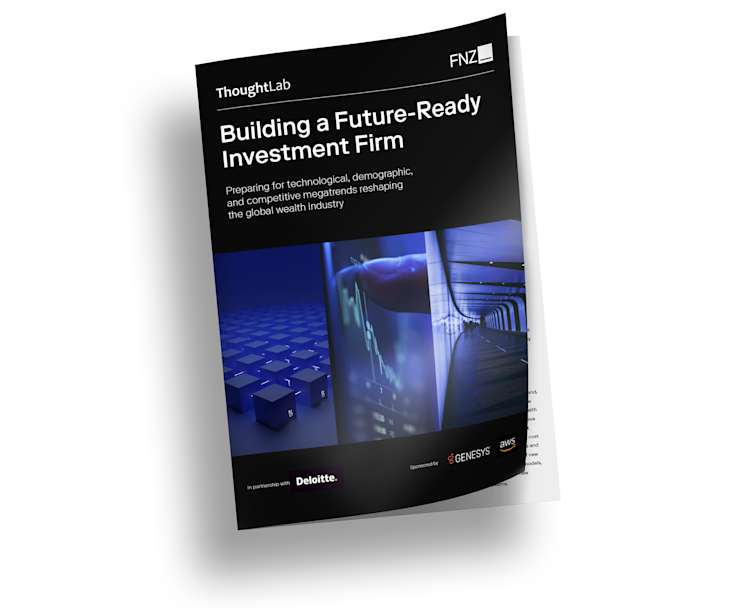Building a Future-Ready Investment Firm
Forward-looking study shows how investment providers are embracing new innovative technologies and AI as investor demographics and expectations shift worldwide.
Major new global analysis from a research coalition comprised of ThoughtLab, Deloitte, and FNZ, with support from Amazon Web Services (AWS) and Genesys and including views of 250 wealth management firms and 2,000 investors, shows that by 2028, the investment industry will look very different, with digital innovation and artificial intelligence (AI) essential ingredients of future success.

Five key takeaways:
The research uncovered five important steps that wealth management firms are taking to become future ready:
Digitally transform client advice and experience. Technological advances are forcing changes to advisor roles and client experiences. Over the next three years, 60% of advisors expect to use AI tools and 67% will rely on hybrid, tech-driven approaches. Firms are behind in meeting investor preferences for engagement through mobile devices and video conferences.
Make client diversity a business opportunity. Firms are going up-market, down-market, and across global markets—and deeper into client niches—to find growth. They are using data to understand their clients as individuals, not investor segments, and to personalize solutions. They are also diversifying their advisor base to serve a more heterogenous clientele.
Drive performance through AI and digital innovation. Investment firms have made significant progress in various aspects of digital innovation, with 9 in 10 in mid-implementation or advanced in technology and process transformation—leveraging increased use of AI, data, and advanced technologies such as end-to-end platforms to shape their future strategies. The returns on their digital investments are remarkable: 44% report lower costs, 41% higher shareholder value, and 40% increased revenue.
Rethink offerings for the next investing era.Over the next three years, investors will want higher-value products and services—from alternatives (62%), annuities (50%), environmental, social, and government (ESG) investments (39%), and custom index funds (25%) to discretionary investment (60%), tax planning (44%), and private banking (41%). To deliver, firms will use digital solutions to drive down the cost to serve.
Adapt business models and market positioning. A new playing field will emerge as digital entrants trigger market shifts and firms reinvent themselves and consolidate. Investor churn will add to the disruption: 56% of investors say they are considering changing providers over the next three years, with fees being the top reason.To respond, firms are lowering or capping fees, while others are building value by adding holistic and specialized planning services.
This form requires JavaScript